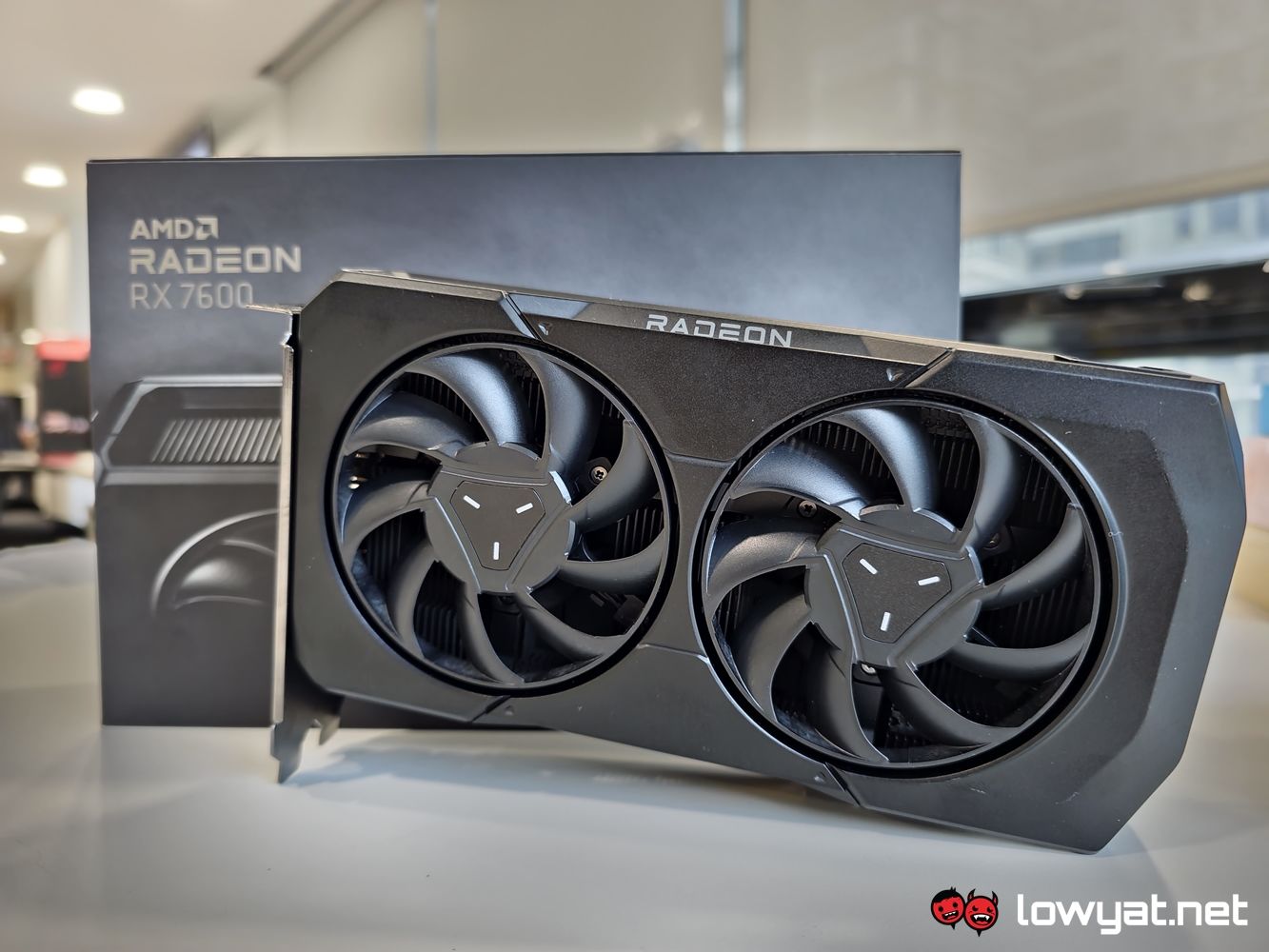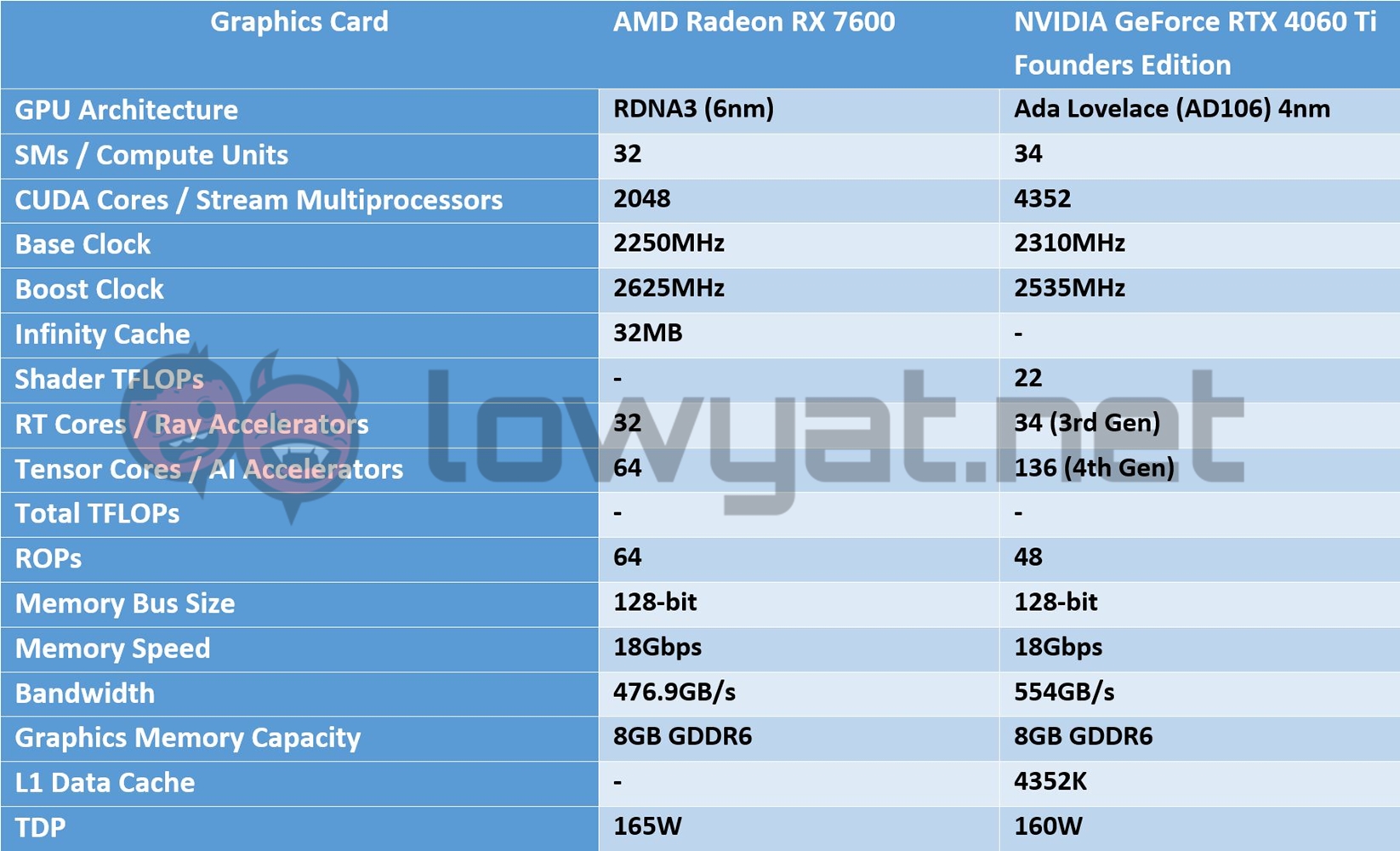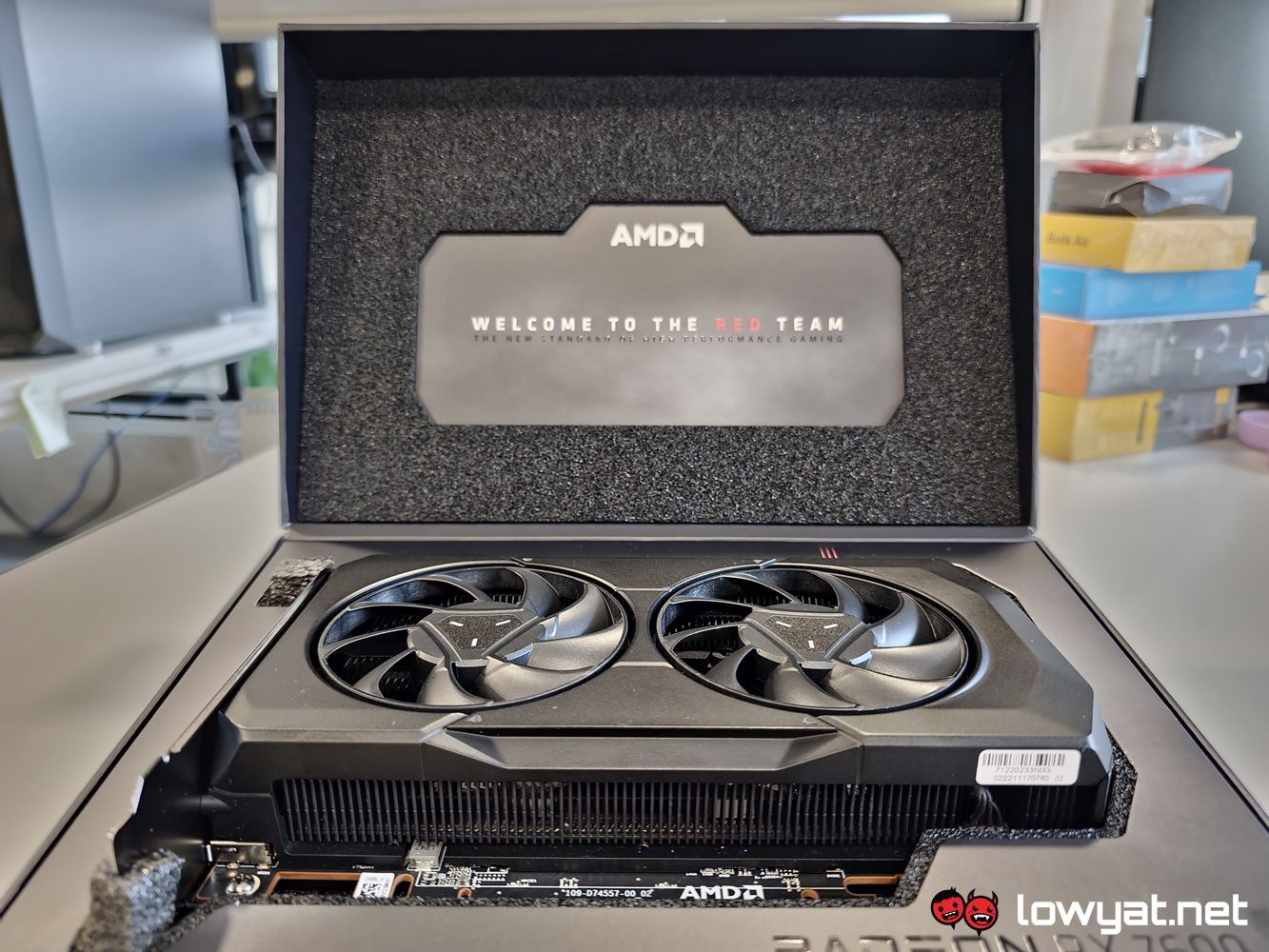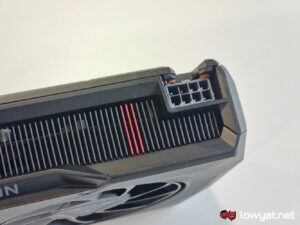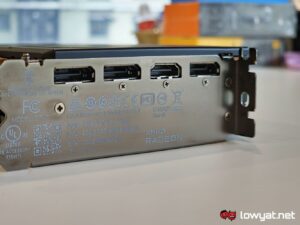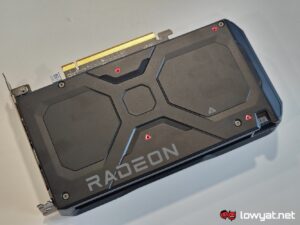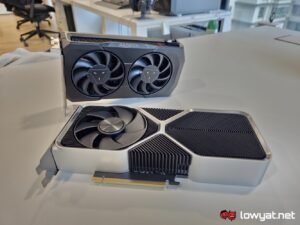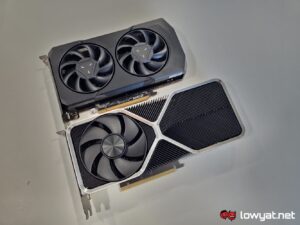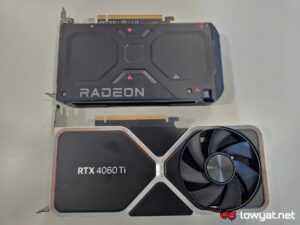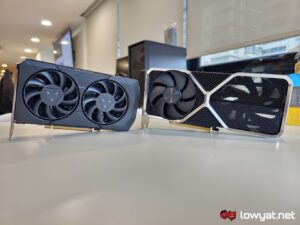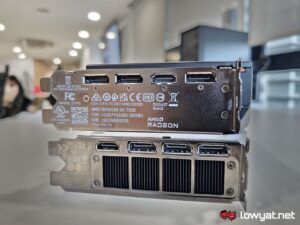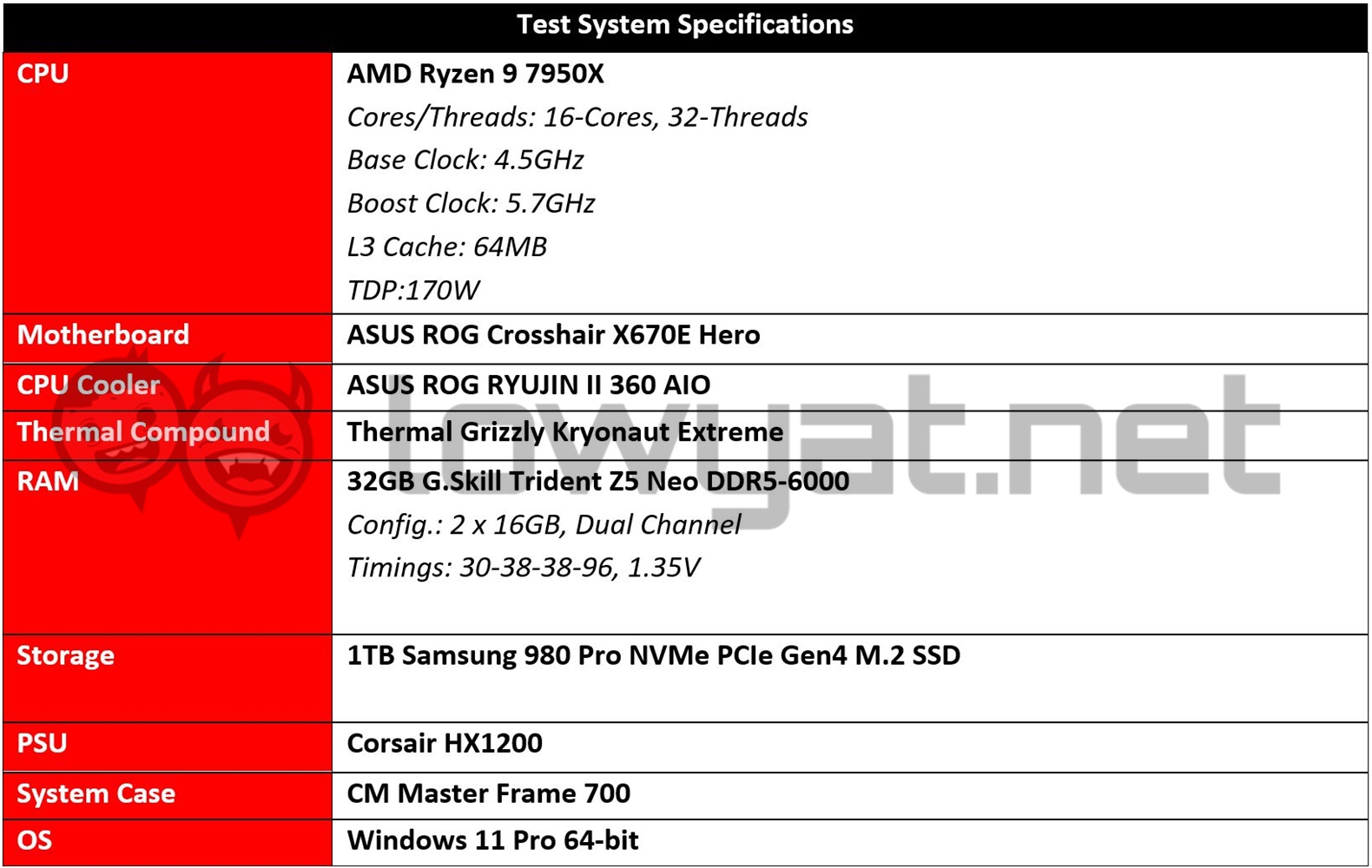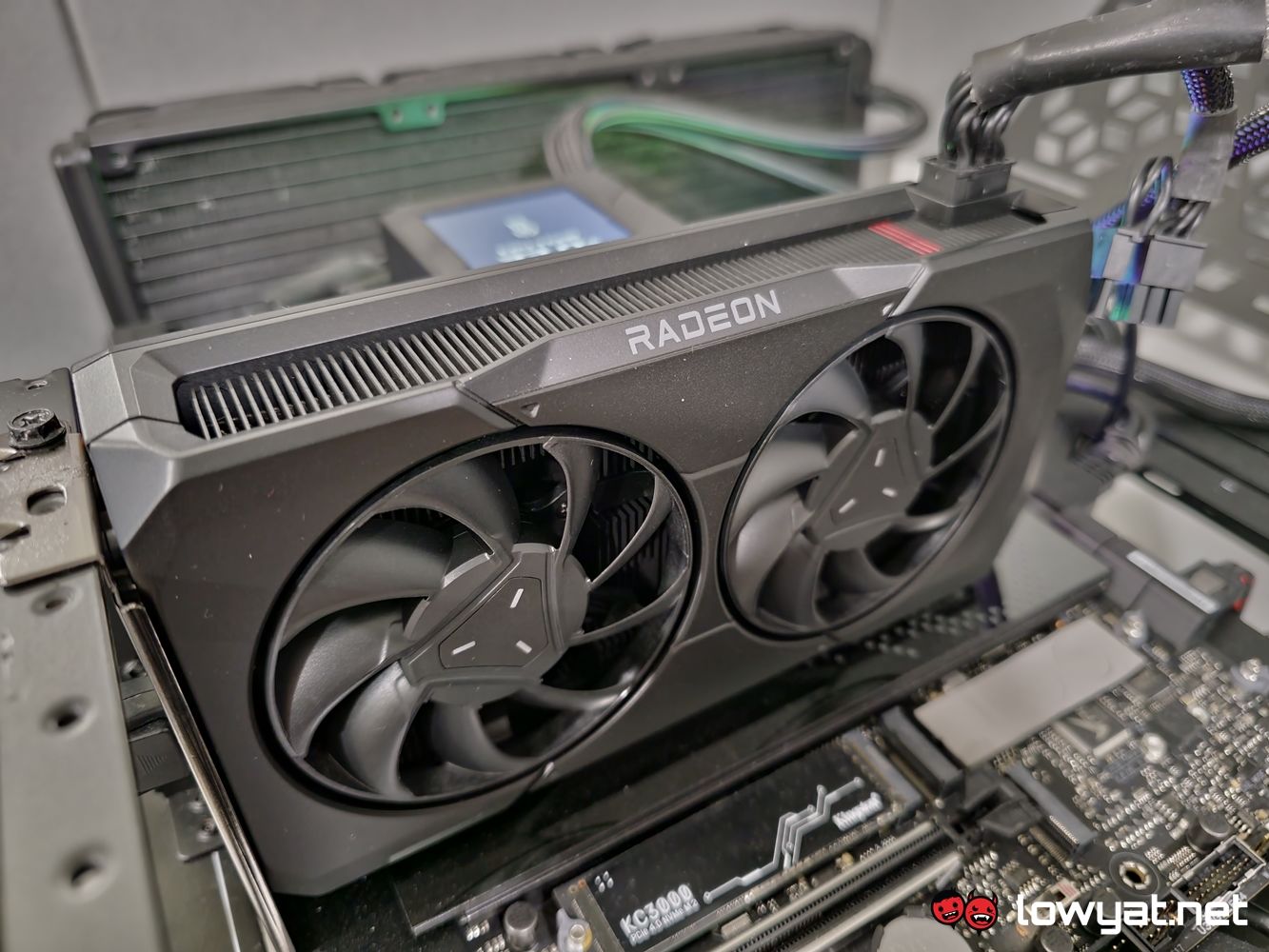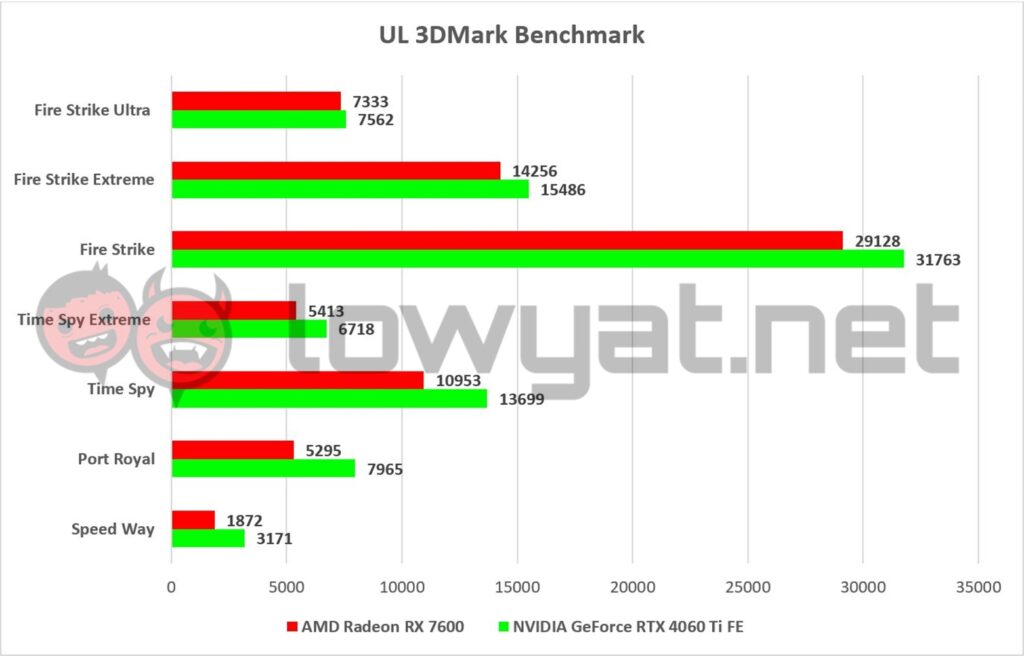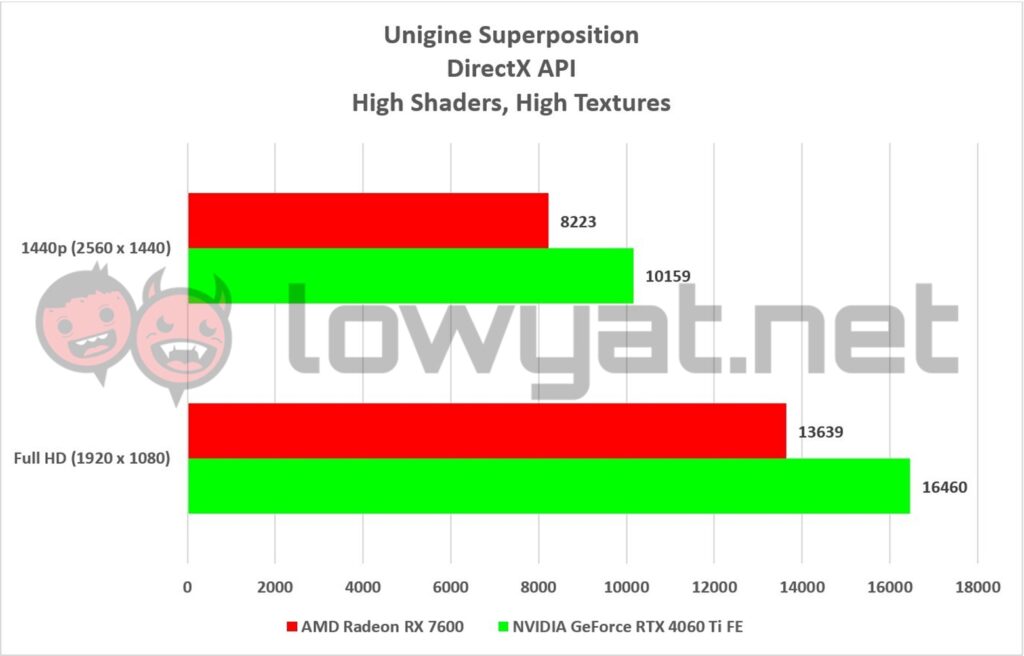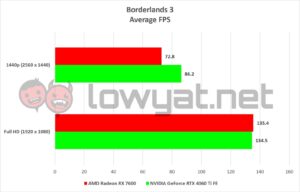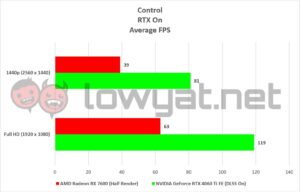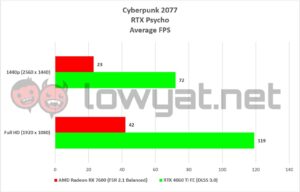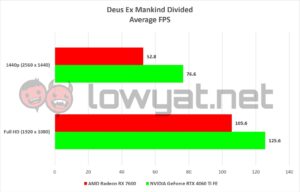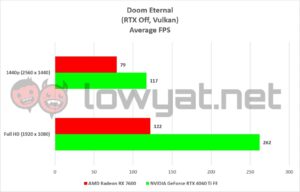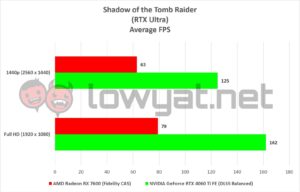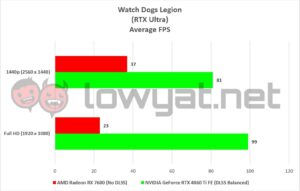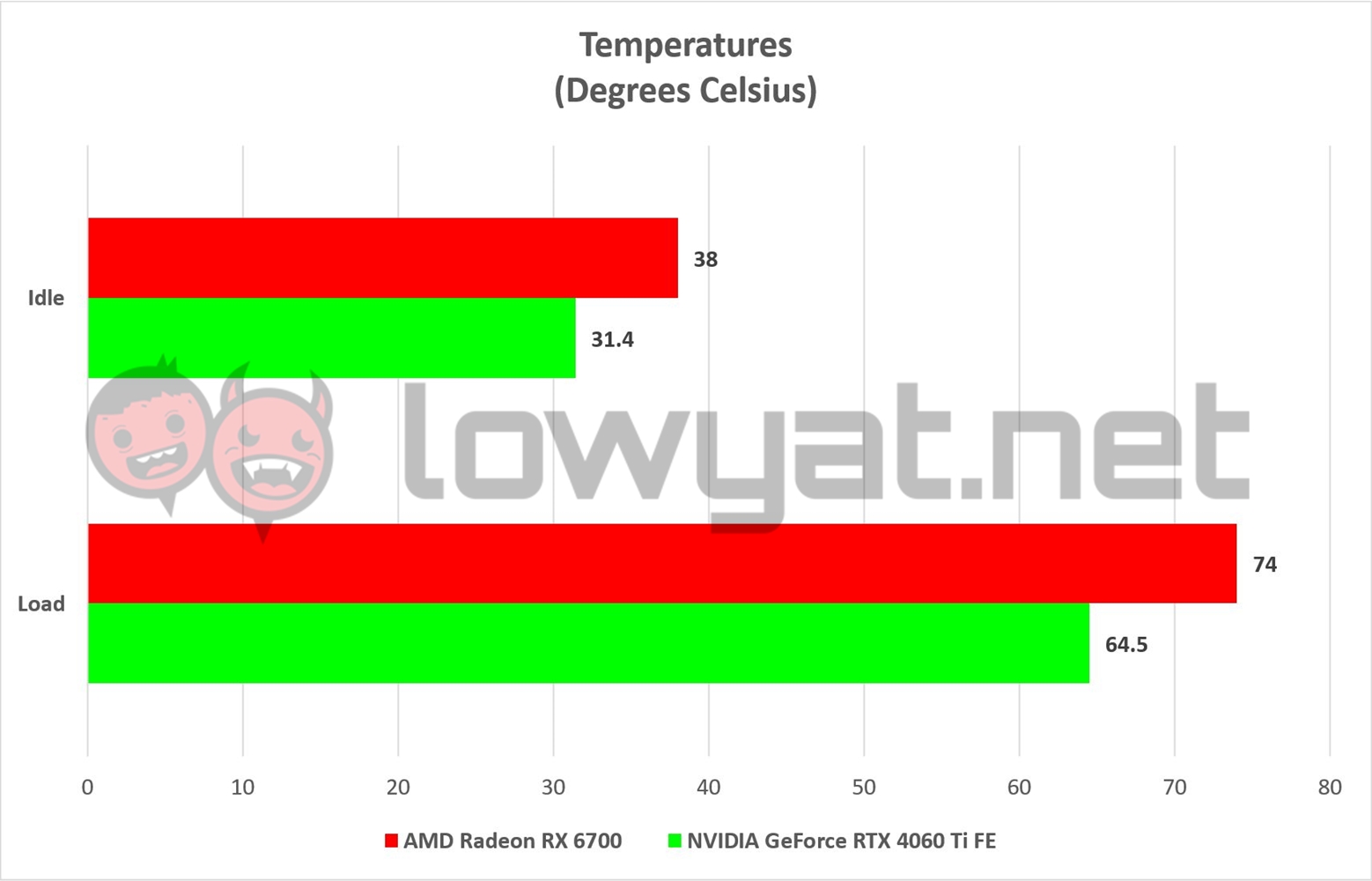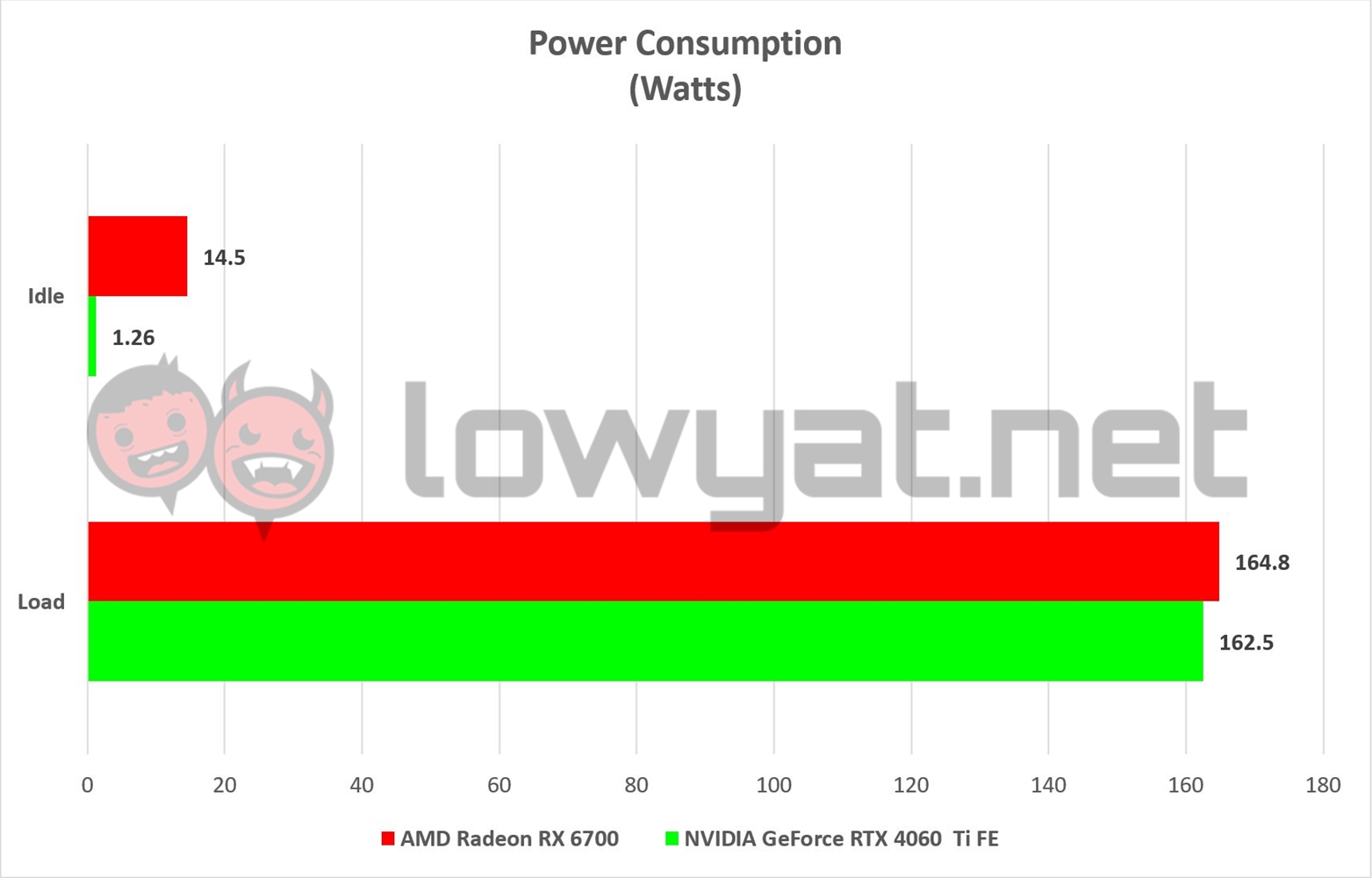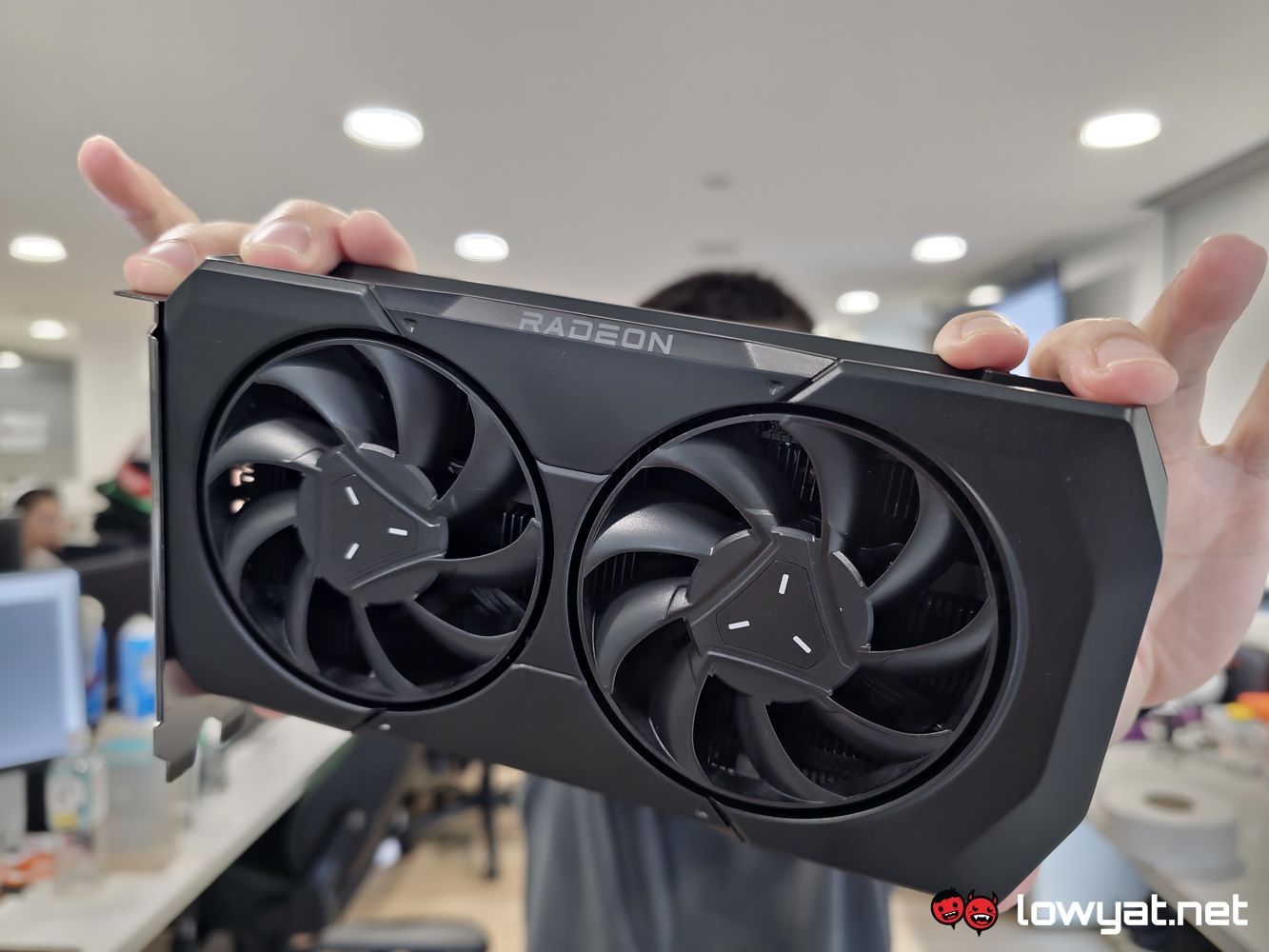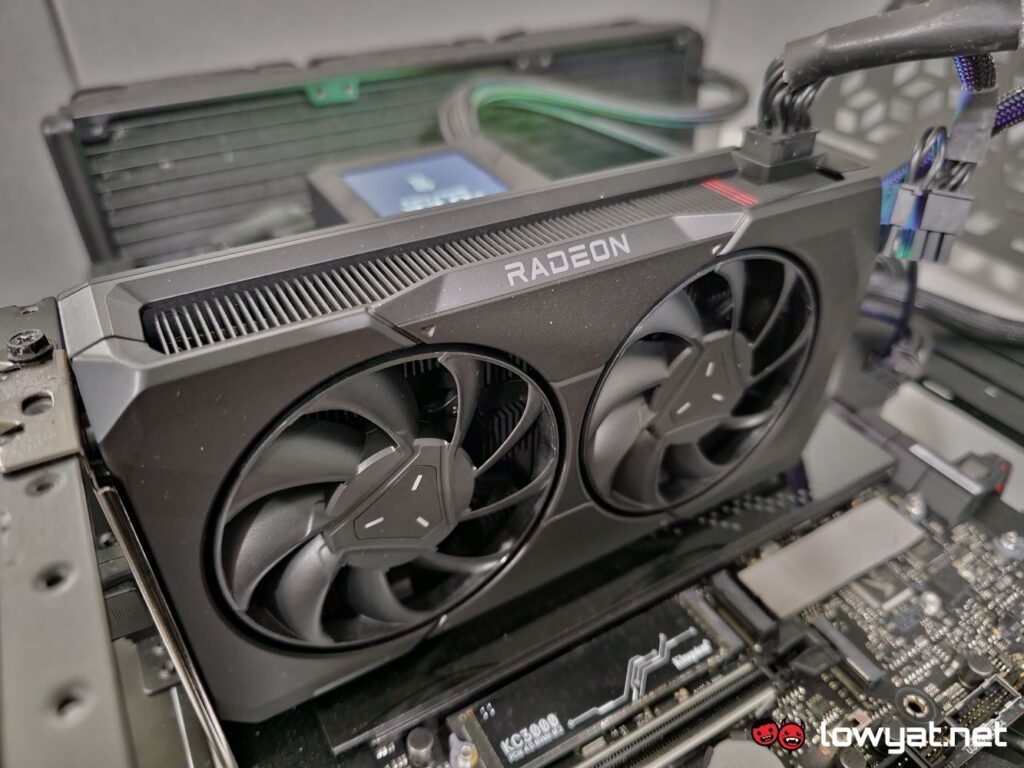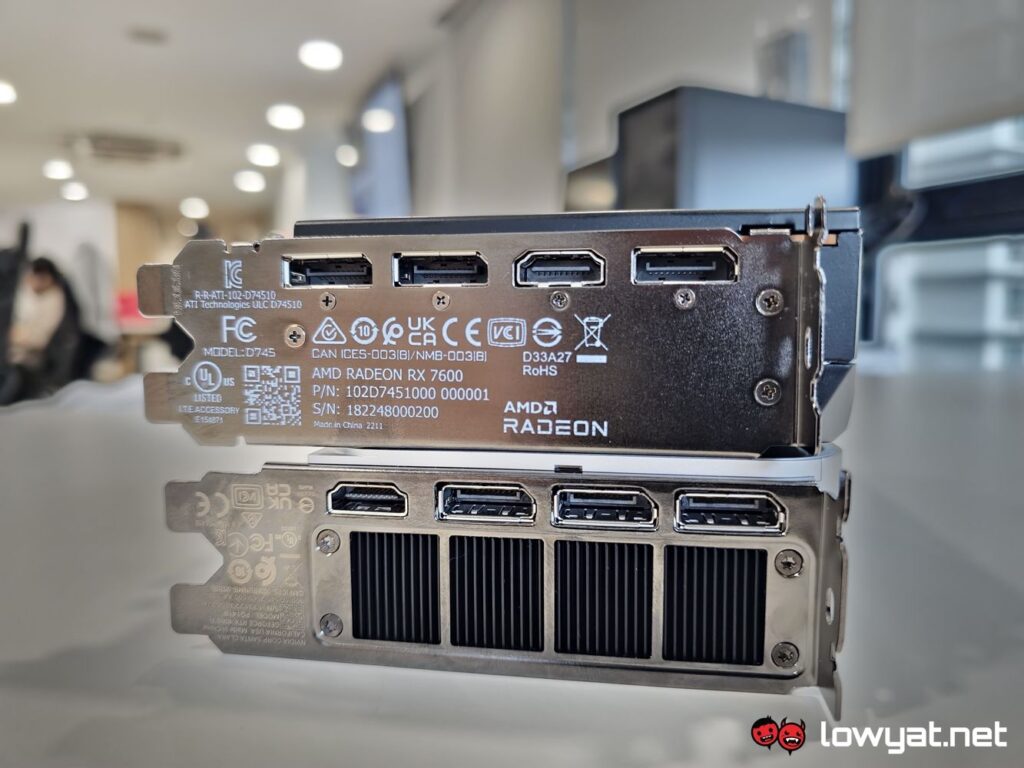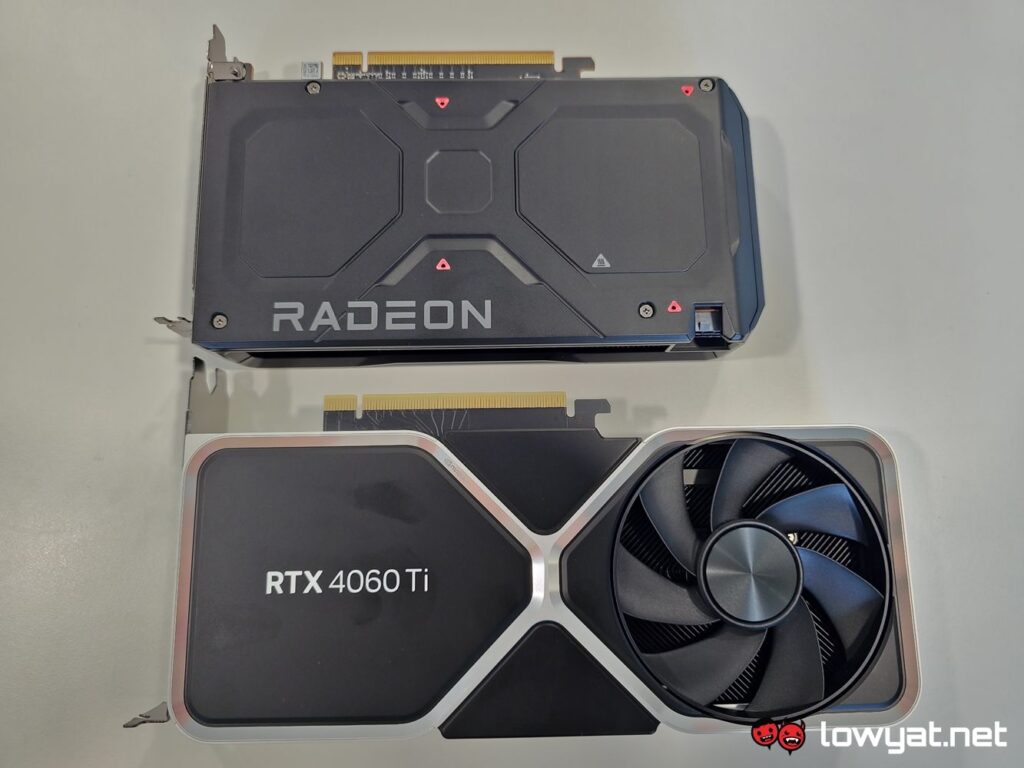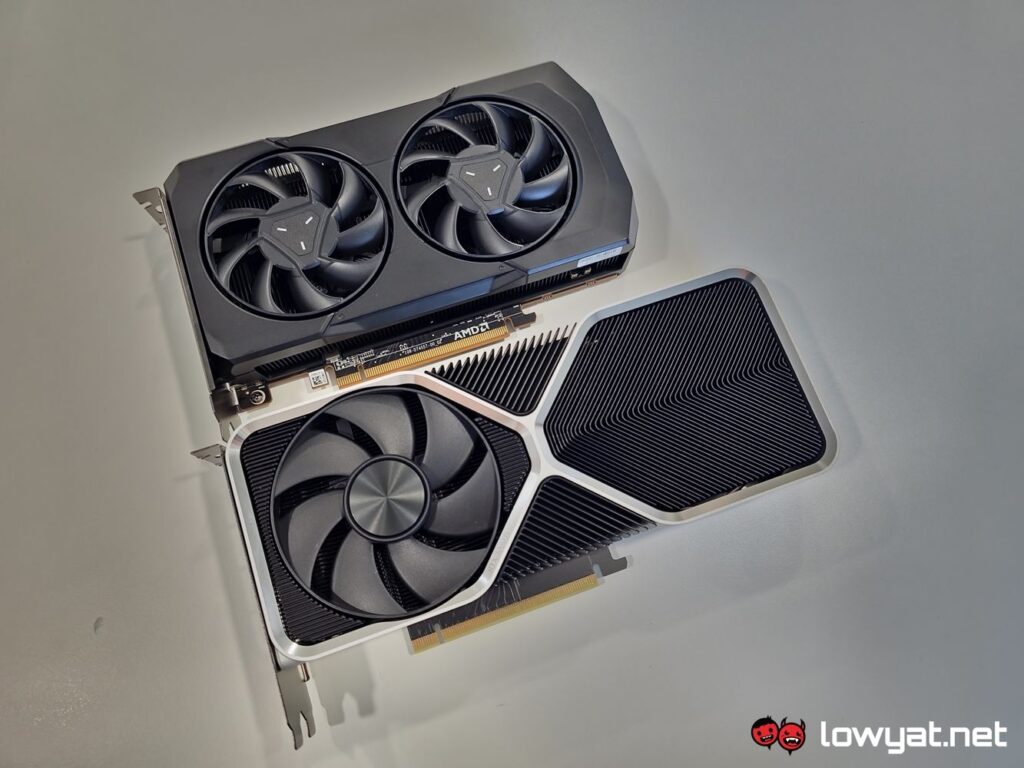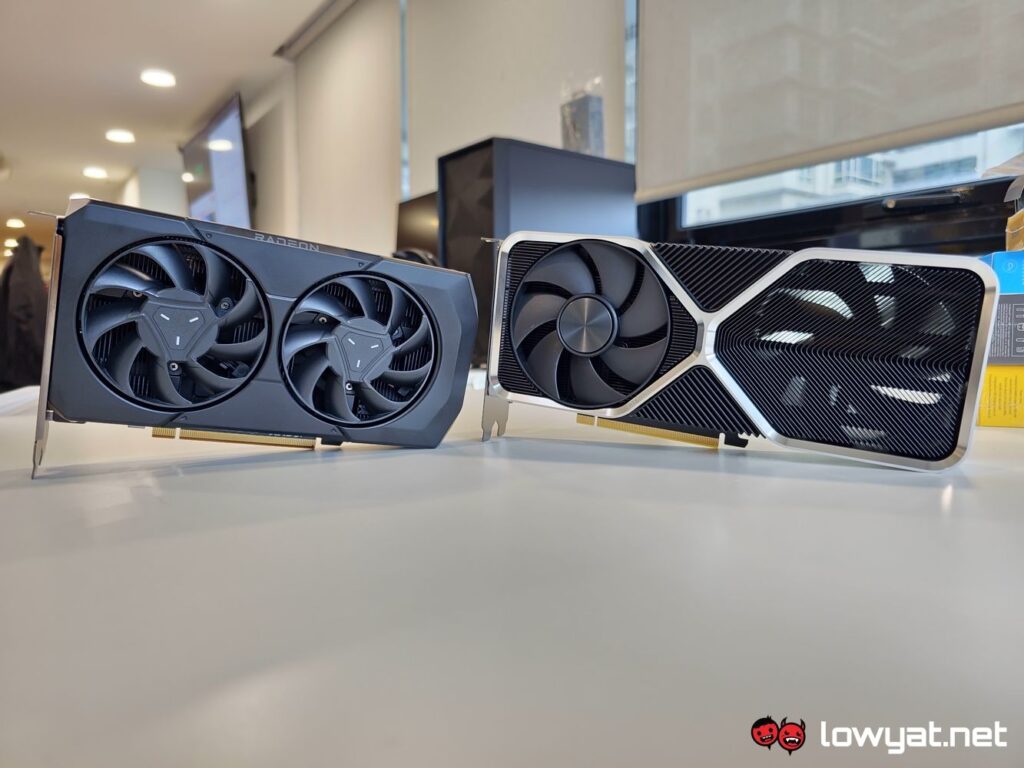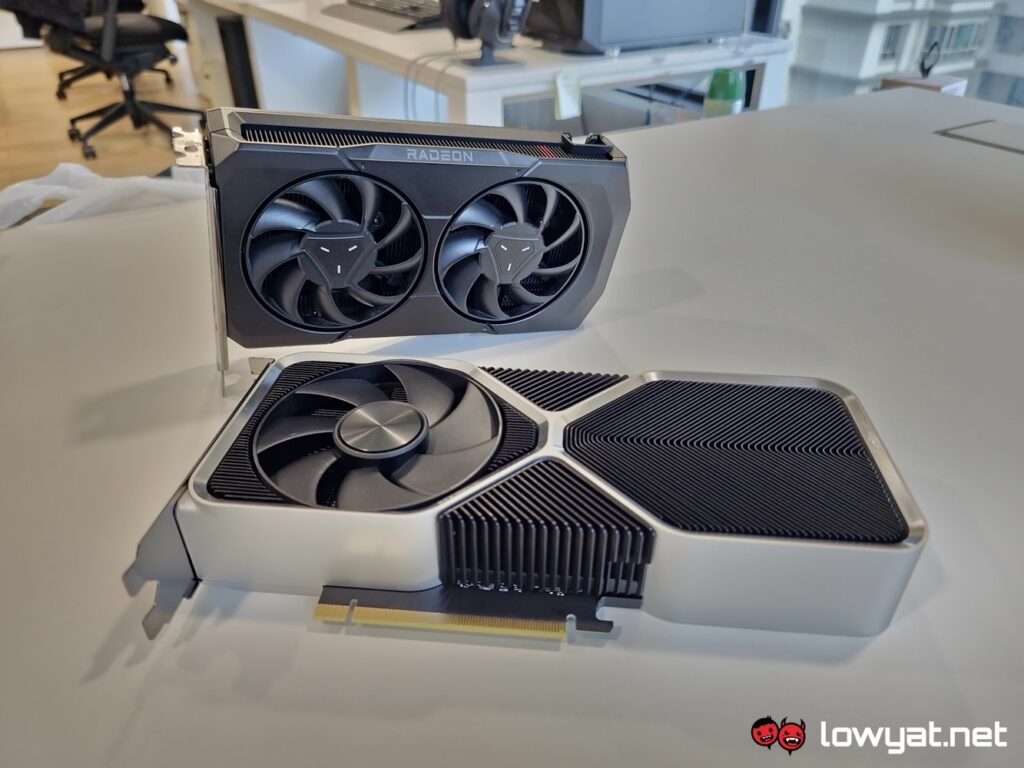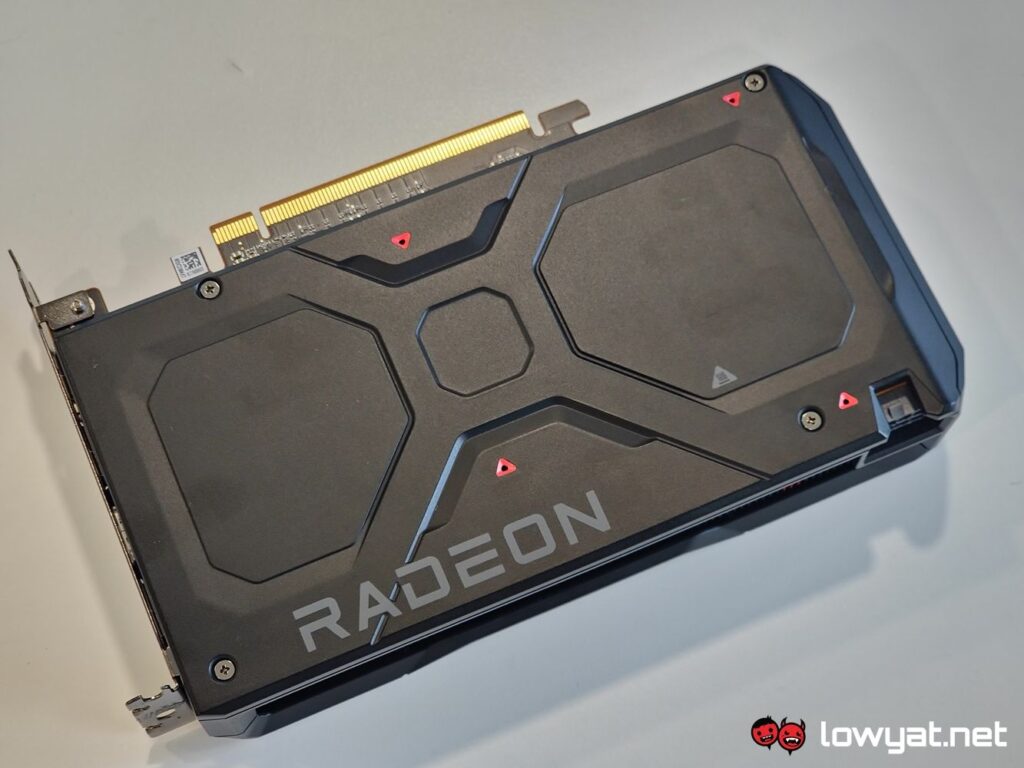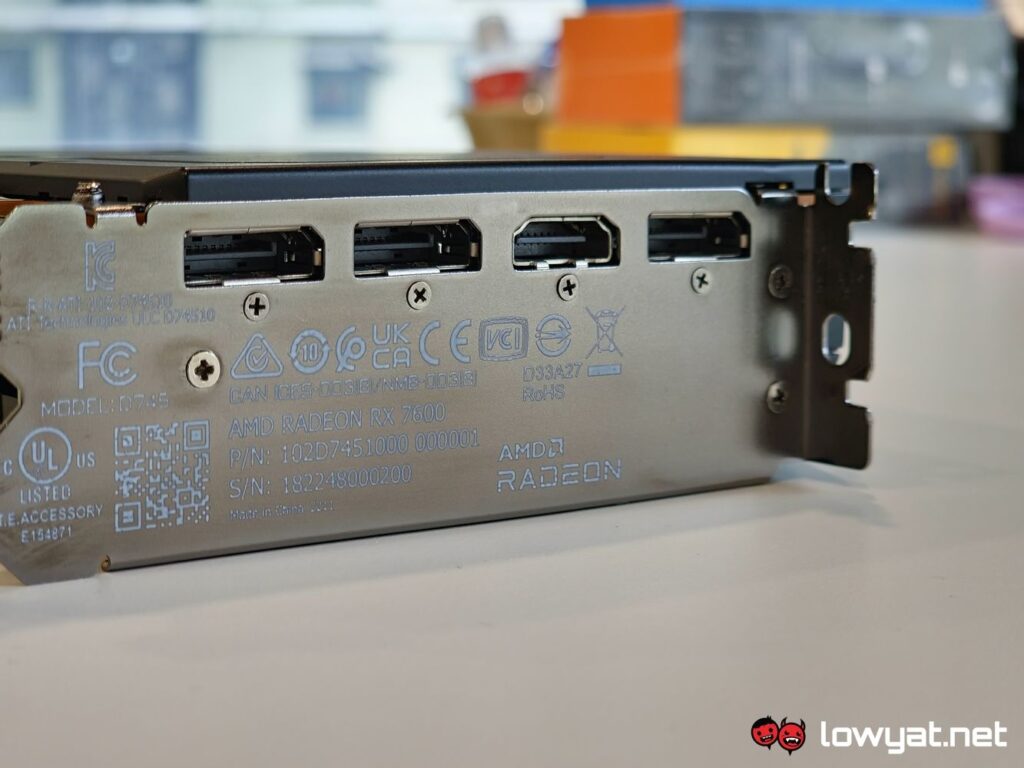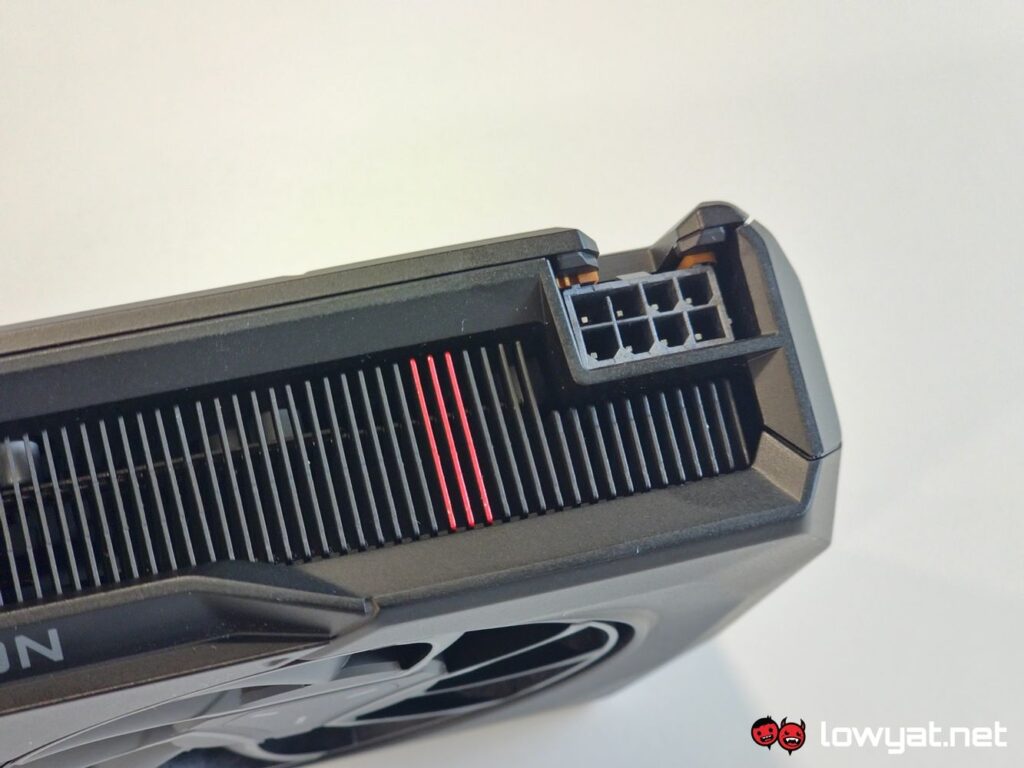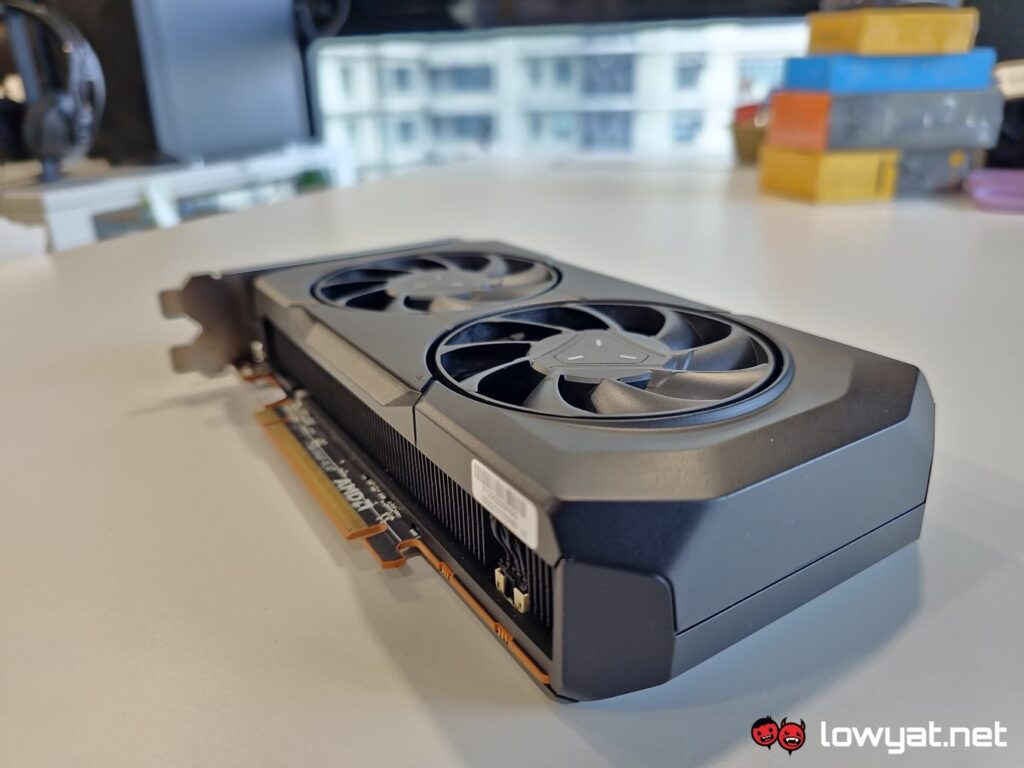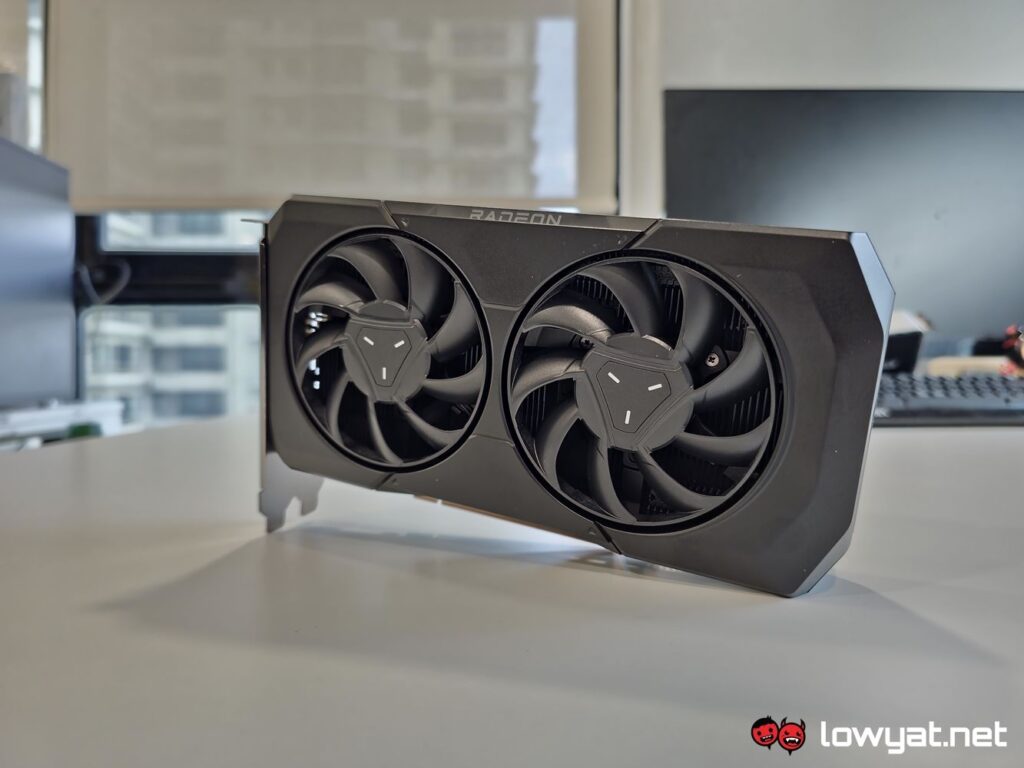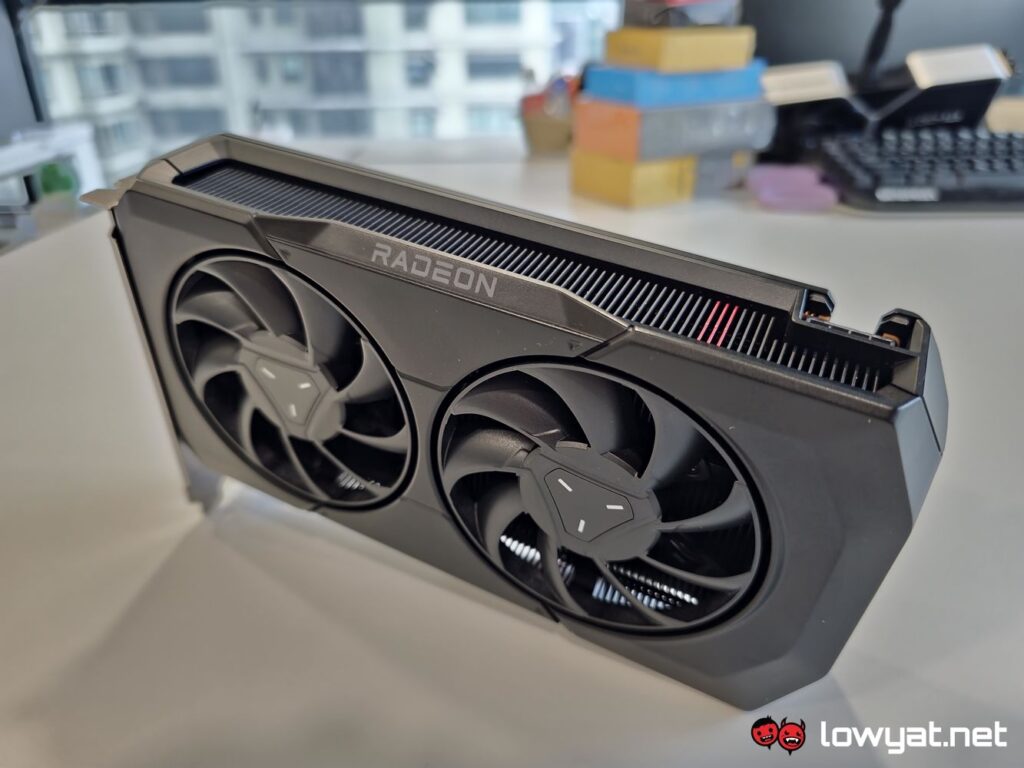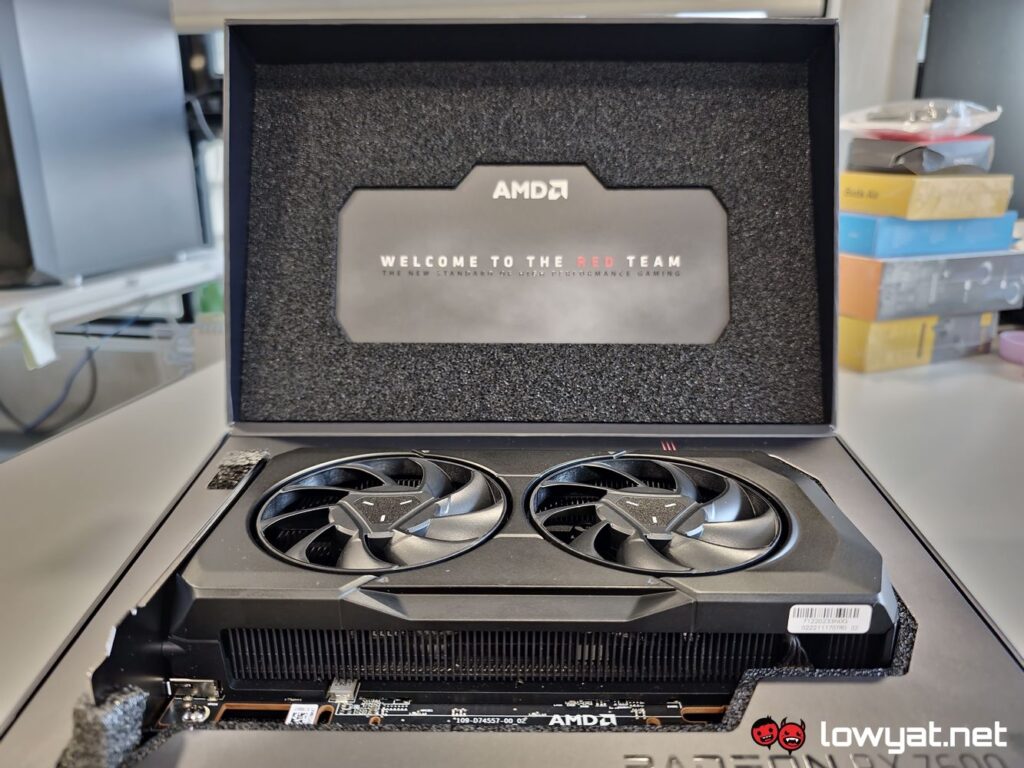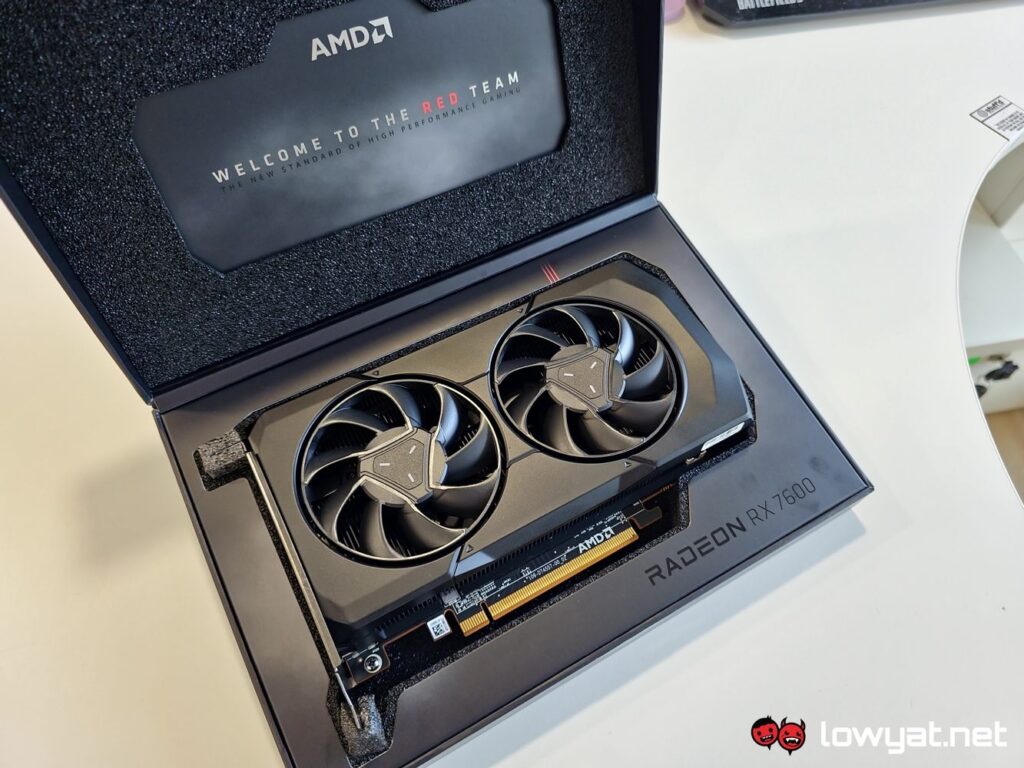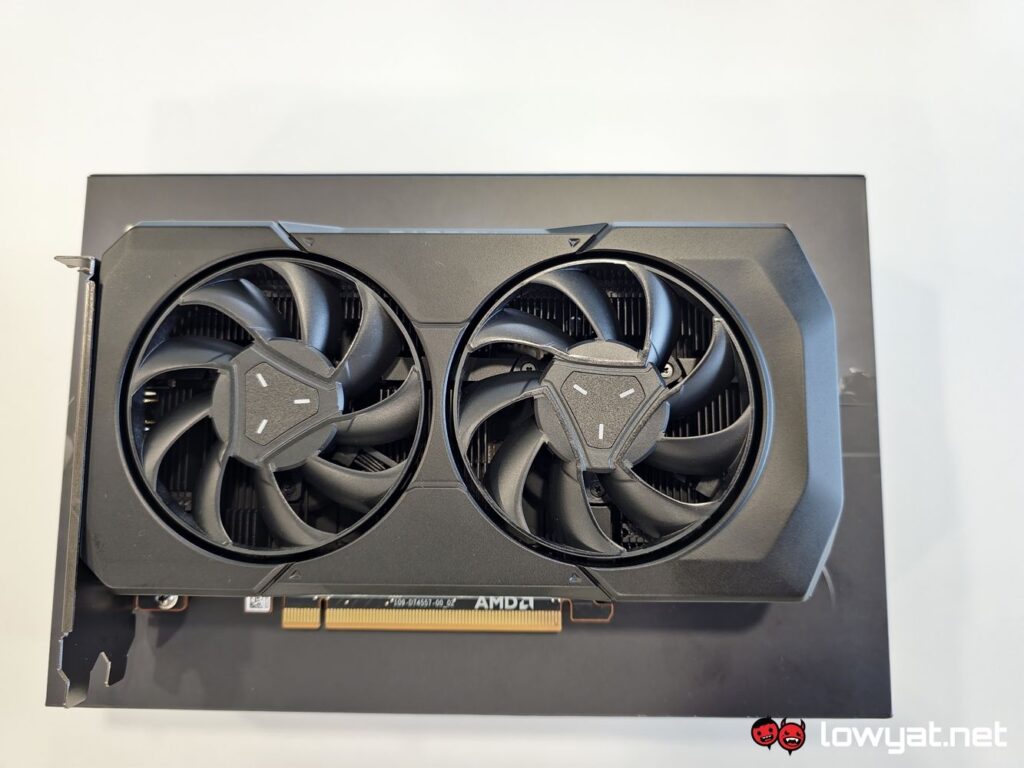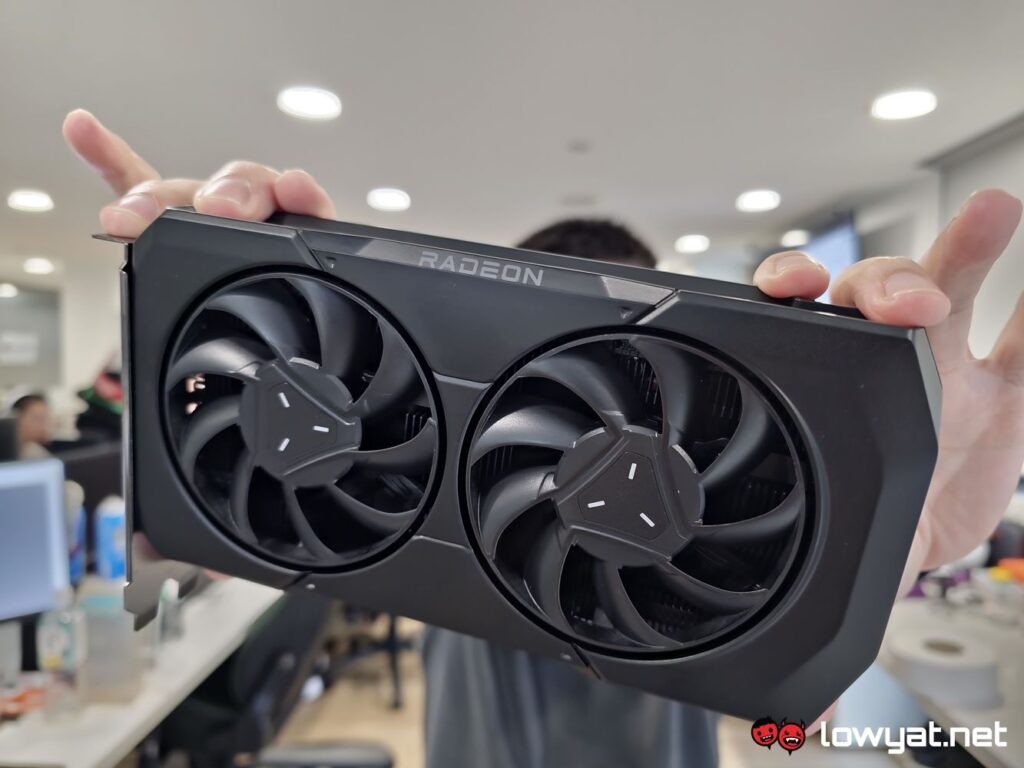When AMD launched its RDNA3-based Radeon RX 7000 Series GPUs last year, we were expecting the CPU and GPU maker to launch every subsequent card thereafter in a laddered and systemic descending order. That clearly hasn’t been the case with the Radeon RX 7600, Team Red’s entry-level GPU for the masses.
So, it’s based on the RDNA3 chiplet design, it’s small, and clearly, it’s been launched as a counter-argument to budget-friendly gaming to the recently launched NVIDIA GeForce RTX 4060 Ti. The question then, as it usually tends to be: has it earned the right to be considered a contender, is it a case of “you get what you paid for”?
Specifications
Design
The Radeon RX 7600 in my lab comes straight from AMD and like its more powerful brethren, it utilises the CPU and GPU brand’s reference cooler design. More specifically, it sports a dual-fan configuration and the shroud more closely resembles the shroud design of the RX 7900 XT. Its all-black design extends all the way to the backplate as well, with the red accents that mark the position of the screws bits that holds the entire card in place.
Speaking of red accents, you’ll also see the three red lines that are visible on the spine of the heatsink – a signature of the Radeon 7000 series and one that you’ll only see on the reference Radeon GPUs. Power-wise, the 7600 is powered by a single 8-pin PCIe power port, which is more than plenty for this 165W GPU. Around the rear, you get three DisplayPort 2.1 ports that support up to 13.5GB/s bitrates, and one HDMI 2.1a port.
Testbench
My testbench for the 7600 is still a Ryzen 7000 Series system and more specifically, the Ryzen 9 7950X. That includes an X670E motherboard from ASUS and 32GB DDR5-6000 RAM from G.Skill.
As for the GPU I am comparing the 7600 to, the answer is obviously the NVIDIA GeForce RTX 4060 Ti FE that I very recently reviewed. It is also going to be a direct competition, given that both cards are modern GPUs and support ray-tracing and their respective AI upscaling software, where applicable. On another note, while these cards were clearly designed for gaming at Full HD, I have also included their performance at 1440p
Benchmarks
My honest-to-goodness viewpoint with the 7600 is that, like every other Radeon GPUs before it, the card is kneecapped by most modern titles with ray-tracing, primarily because not all of them carry support for AMD’s own FidelityFX Super Resolution (FSR) AI upscaling software. Having said that, for titles that do support FSR, I am sad to say that its performance isn’t quite what AMD wants it to be.
In the synthetic benchmark section of my review, the 7600 is clearly behind the RTX 4060 Ti in every listed test, even if a handful of them show the card just barely behind its rival. Of course, that the card is actually able to run both the Port Royal and Speed Way tests in 3DMark without crashing is a relief in and of itself, given that this is my general experience with AMD’s GPUs since the RX 6000 Series.
When it comes to gaming, the natural hunting ground of all consumer graphics cards, the 7600 can best be described as playing catch-up to the RTX 4060 Ti. Again, some of the titles on my benchmark list aren’t friendly to Radeon GPUs in terms of ray-tracing, but there are also older titles that predate the advent of the feature in which the card is consistently lagging behind.
In the case of Cyberpunk 2077, the game does support FSR 2.1 but even with the function set toggled on and set at Balanced – ray-tracing, for that matter, is always set to Ultra in my reviews – The 7600 barely managed a meagre 40 fps average throughout the game. It is also the only game on the list that crashes constantly, so much so that the only way I could remedy the issue was to uninstall and reinstall the Radeon drivers AMD had provided.
But even in titles that are effectively AMD-centric like Deus Ex Mankind Divided and Borderlands 3, the 7600 can still be seen falling behind RTX 4060 Ti, and again, these are games that technically depend on the sheer, raw power of the GPU.
Temperature and Power Consumption
Both the operating temperature and performance-per-watt of the 7600, like the RTX 4060 Ti, isn’t anything to shout about and at a glance, it runs hotter than Team Green’s entry-level GPU. At its peak, the budget RDNA3 card is 10°C hotter when running at peak. It’s not great or terrible, but it is certainly hotter than its entry-level RDNA2 predecessors, the RX 6600 and 6600 XT, both of which peaked at a maximum of 60°C.
For power consumption, the 7600 is again hitting its advertised TDP of 165W, and as such, nothing to report here.
Conclusion
If I wasn’t clear before this, I will say it here one more time: AMD’s Radeon RX 7600 wasn’t the GPU I was expecting the Red chipmaker to release but at the same time, it is clear to see that it is a “measured” response to NVIDIA’s fresh-off-the-oven offering for the entry-level PC gaming segment. That said, its arrival certainly allows the brand to shut down the question about what it plans on bringing to the budget GPU market, for now.
But even at a starting SRP of US$269 (~RM1,234), I honestly don’t quite believe the 7600 is quite the contender AMD thinks the GPU is to NVIDIA’s current entry-level bruiser. To be clear, it’s not a terrible card and in most of my review titles, it has no problems staying above the 60 fps surface, especially when gaming at Full HD resolution, sans ray-tracing. On that note, we still have yet to see the kind of performance the non-Ti RTX 4060 will deliver, and I’m making a grand assumption that that card’s performance will be more in tune with this one.
Of course, an asking price below RM1,500 is very enticing, and more importantly, it is an alternative in a market that has for too long been dominated by NVIDIA.
Photography by John Law.
Follow us on Instagram, Facebook, Twitter or Telegram for more updates and breaking news.


